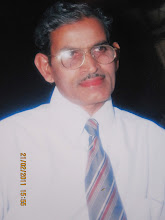In case, if the begger or Yaachaka or wandering
mendicant (Bhikshuh) comes
at the time of taking meals ?
In Hindu Scripts, they say all the family members
take their food at a time like a saha pankti bhojanam.
(sitting in a row and take their meals at one time),
unless in unavoidable circumstances, if it is
not be possible to take food at a time with other family members.
Suppose, if any begger or Bhikshu or monk
or wandering mendicant comes to the house
at the time of taking meals, it is clearly said
that the Bikshu or begger whoever
comes to the house, must be fed .
We have to offer the Bhiksha to him and
under any circumstances he should
not be rejected by the Gruha Yajamani.
He comes with pangs of hungry.
It is common to all the creatures.
Before taking food the Gruhastu must
give some food to other creatures those
who do not have peech like birds, ants, insects etc.,
At that time those who suffer with hungry
are like the Bhagavat Swaroopas ( the form of God).
Means, the Paramatham is in the form of Athma
in all the human beings, and creatures anxious for the hungry.
Hence the Athma must not be put to trouble
and so we have to offer the Bhiskha or food to them.
They are to be called as “Atidhi Devo Bhava.”
At what time, the Bhiksha should not be
offered or given to the
Yachaka ?
Only on the occasion the Bhiskha or food should
not be served to the begger or Bhiskhu or monk etc.,
In Hindu Dharma Sasta it is said very clearly,
the Gruhastu must repay his debt to
their parents and other ancestors
which is called Pitru Runam as they
gave birth to him. This Nara Janma is
very rare to obtain on this earth.
There fore the parents have to be
offered the Tarpanas, Adbikas etc by their children.
Hence on the occasions of Pitrukaaryas,
ulness the rituals are not completed
the bhiksha should not be served to the Bhikshu
or begger or any other monks on that particular time.
Once the rituals of pitrukaaryas are over, then
asusally the food can be served to the Bhiskhu etc.,

0 comments:
Post a Comment